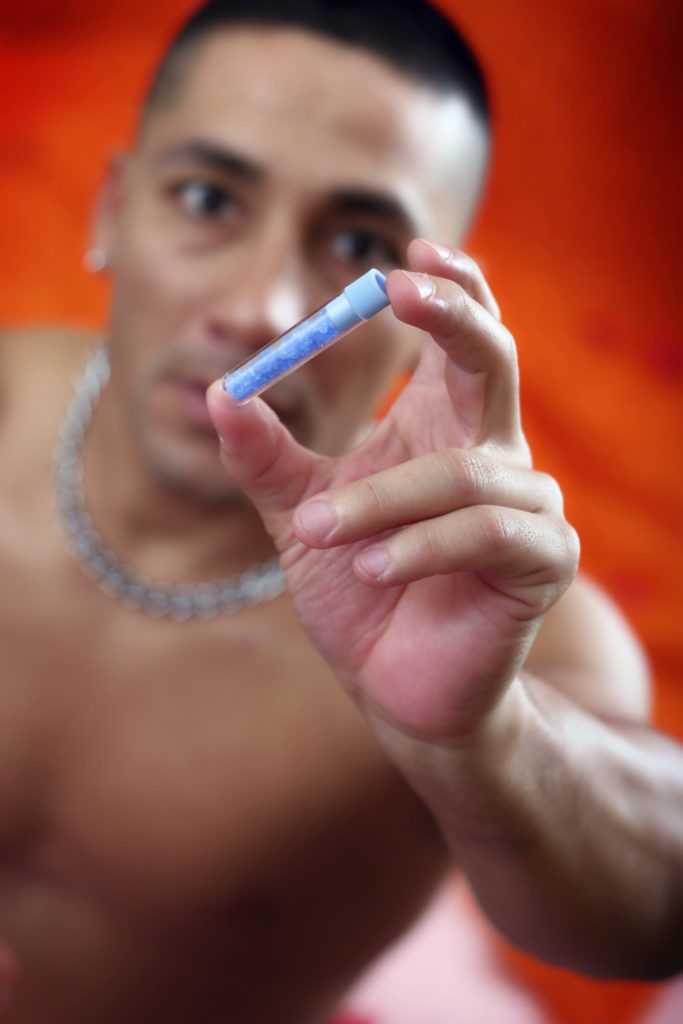We hear from our clients often that they want to break free from addiction, but there’s one thing that stands in their way: detox. They fear the process and don’t know what to expect when they detox or what it looks like here at The Right Step in our Texas-based detox programs. In this blog, we’ll start from the beginning: what is detox and what to expect when you detox.
Detox is short for detoxification, and for our purposes, it refers to the removal of all unwanted drugs from the body. It typically is administered in the form of a medically supervised program and involves controlled withdrawal.
Although it may seem like a foreign concept, if you or someone you love is caught up in the cycle of drug dependency, they are likely already familiar with withdrawals, although they may recognize it as something separate: cravings.
Withdrawal symptoms are your body’s way of signaling they are no longer receiving the effects of the substance that they have grown accustomed to. And up until the point you enter detox, you have chosen to answer your body’s request via withdrawal symptoms one way: by using more drugs.
Upon entry into detox, you will deal with the withdrawal symptoms a different way: by moving through them and allowing your body to reset itself. This can be pretty scary because the withdrawal symptoms brought on by detox can be very physically uncomfortable.
It’s particularly true when you are surrounded by people you don’t know, filled with anxiety as you remember things you did to other people, potentially experiencing a distorted reality at times and being cut off from your outside life.
What Should I Know About The Right Step Addiction Detox Programs?
Detox is considered preparation for addiction treatment because as your body eliminates substances, it will allow your clinicians to get to the issues that caused the drug use to begin with—not treat phantom, drug-related symptoms that hide real problems.
The first thing to know is that your withdrawal process will depend on what your drug(s) of choice was, as well as the frequency and amount of use. Depending on your situation, in a medically supervised detox program, the attending physician may use drugs to help with your withdrawal symptoms or help fortify your relapse prevention strategy from the start.
Withdrawal lasts for days to weeks—depending on the definition—whereas post-acute withdrawal symptoms last for months. The difference is that post-acute withdrawal consists mainly of psychological challenges, whereas the withdrawal phase includes physical ones (UCLA Dual Diagnosis Program, 2021).
Symptoms of Detox
You may be frightened of detox; you may have heard that it is an overwhelming experience, that people nearly die or you may feel that it is not worth it because you have seen so many people relapse. While brief in duration, detox makes a massive difference in the life you lead after you go through it. It is truly cost-effective in emotional, physical and financial ways.
How Am I Going to Physically Feel During Detox?
Insomnia
Insomnia is common to every drug withdrawal, including nicotine (McLaughlin, Dani, & De Biasi, 2015), with the exception of stimulant withdrawal (where increased sleep occurs) and cannabis withdrawal (where sleep is disrupted, often with vivid dreaming). According to the American Academy of Sleep Medicine, during your struggle with insomnia, you may experience the following: daytime sleepiness, irritability, difficulty concentrating, fatigue, poor memory, low energy and experience an increased propensity for errors or various kinds of accidents (i.e., walking into things, dropping things, etc.).
In those early days of treatment, you will need to take it easy. You might answer questions incorrectly; you may be short with someone and struggle to rein in your temper. Some of these things may be related to why you began using drugs. A good treatment provider will be fully versed in these common symptoms and prepare you for what to expect during your withdrawal process.
Gastrointestinal upset/nausea/vomiting
Some type of GI distress is common to all drug withdrawal, minus benzodiazepine and stimulant withdrawal. Stomach problems and vomiting can be one of the foremost reasons individuals are frightened to begin detox. While your body is ridding itself of all the toxins, it’s difficult to keep a positive attitude or see the other side, but you will get there. Very often, during medically supervised detox, professionals utilize medications to limit the effects of dehydration caused by vomiting, so you may be able to avoid it altogether.
Muscle aches/muscle tension
Some form of muscle pain is common during all drug withdrawal, except for alcohol (unless severely dehydrated), inhalants and cannabis. Spasms and tension are involuntary and are a contraction or shortening of the muscle or group of muscles; most often, you have to wait until the muscle(s) relax.
Your muscles may ache afterward. Cramps may happen especially at night and particularly if you are low in potassium, so be sure to tell a doctor or nurse. The best thing to do is breathe and slowly stretch the muscle as your body tells you it is ready. Be sure to drink fluids as well.
Emotionally, How am I Going to Feel During Detox?
So far, we’ve talked about the most common physical symptoms, and below we’ll review the most common psychological symptoms. In terms of how extreme your withdrawal is and how lengthy, several factors can make it worse.
What factors affect the withdrawal process?
- Substance of choice
- Method of use (smoking, oral, etc.)
- Family history
- Length of use
- Tolerance levels and amount of regular use
- Any co-occurring disorders
Emotionally, How am I Going to Feel During Detox?
Anxious
Anxiety occurs when withdrawing from every drug type except for stimulants and inhalants. You might be familiar with some anxiety disorders, like panic disorder or phobia. Still, the more general anxiety referred to here is a stress response experienced as worry about a situation that you can’t put your finger on.
You might seem nervous to other people or worry excessively about things that you generally do not. You may also overfocus on individual details and become concerned about them, giving them too much weight in a situation. Remember that anxiety is a cognitive phenomenon, an inability to separate what is important from what is unimportant.
When paired with insomnia, poor memory may affect your recall of events and aggravate this symptom. Be sure to take the time to listen to the counsel of your treatment team, and take opportunities to calm your anxiety, such as physical exercise, as recommended by your doctor.
Irritable
Irritability occurs in the withdrawal process from all drugs except alcohol and opioids. It is not the same as anger, as you are not angry about any particular thing; it means you are more likely to be in a negative affective state or experience crankiness and become frustrated more quickly. Feeling edgy or reactive— interpreting another person’s actions as hostile rather than neutral or positive—is another part of irritability (Holtzman, O’Connor, Barata, & Stewart, 2014).
Situations in which we are aware we are out of control (like detox) have a great propensity to make us feel irritable (Esposito, 2016), so be prepared to recognize that this is a symptom of the withdrawal, rather than an accurate reading of the situation. You will likely misinterpret some things and may want to consider apologizing or explaining how you were feeling.
Disoriented
Some level of disorientation occurs across the spectrum of drug withdrawal. It means that you are unsure where you are, what time it is (year or time of day/week/etc.) or possibly who you are. Disorientation during withdrawal usually happens in the form of not knowing where you are and who people around you are or their role in your care.
Hallucinations, delusions, delirium, agitation and wandering all go along with disorientation. This sounds like a terrifying experience, but when it occurs, you are typically unaware. It’s a great deal like actively being on drugs or having a migraine; there is a spacy quality to disorientation.
Although the withdrawal process may impair your decision-making, you will be well-supervised by the caring staff at The Right Step. Your therapists will spend time reorienting you to where you are and what is happening.
Depressed Mood/Sad
Feeling down or sad is common during withdrawal from stimulants and inhalants. If you have a history of a mood disorder, you’ll have discussed this during your intake and will receive treatment according to the parameters of your detox (you may touch base with an existing psychologist, your current medication may continue, etc.).
Feeling sad may also be a new experience for you. Well-regarded psychologist Paul Ekman describes it as “the loss of a valued person or object,” and even though you may be glad to be moving on, grief surrounding the loss of addiction is still a valid feeling.
It’s normal to feel sad when you lose your old haunts, friends and daily habits and experiences. And adding to the difficulty, your experience of depression is also aggravated by malfunctioning brain systems that have become dependent upon the regular use of substances. In time, this will pass, and you will again experience the full spectrum of emotions.
This doesn’t sound so bad. Can I manage it on my own?
Probably not the best idea. There is a risk for death and serious medical issues during withdrawal. For example, some research has found a 6.6% death rate during alcohol withdrawal (Monte, Rabunal, Casariego, Lopez-Agreda, Mateos, Pertega, 2010).
Another study suggests that delirium tremens (delirium, psychomotor disturbance, tremor, hallucinations) occur between .2 and .7% of the treatment-seeking population undergoing alcohol withdrawal (Grover and Ghosh, 2018).
Also, remember that you have been avoiding detox treatment for a reason. Without a professional team by your side to fortify your commitment to recovery, you may not follow through when the symptoms become unpleasant or unmanageable without medical intervention. Begin your care for yourself on the best path with a knowledgeable team to help you discern the next best steps for your recovery.
Connect with us at The Right Step today to learn about detox programs in Texas near you.
Grover, S., Ghosh. A. (December 2018). Delirium tremens: Assessment and management. Journal of Clinical and Experimental Hepatology, 8(4), https://www.ncbi.nlm.nih.gov/pmc/articles/PMC6286444/
Holtzman, S., O’Connor, B. P., Barata, P. C., Stewart, D. E. (15 May, 2014). The brief irritability test (BITe): A measure of irritability for use among men and women. Assessment, 22(1), 101-115. https://journals.sagepub.com/doi/abs/10.1177/1073191114533814
McLaughlin, I., Dani, J. A., De Biasi, M. (2015). Nicotine withdrawal. Current topics in Behavioral Neuroscience, 24, 99-123. https://www.ncbi.nlm.nih.gov/pmc/articles/PMC4542051/
Monte, R., Rabuñal, R., Casariego, E., López-Agreda, H., Mateos, A., Pértega, S. (2010). Analysis of the factors determining survival of alcoholic withdrawal syndrome patients in a general hospital. Alcohol and Alcoholism, 45(2), 151–158. https://doi.org/10.1093/alcalc/agp087
University of California Dual Diagnosis Program. (n.d.).






